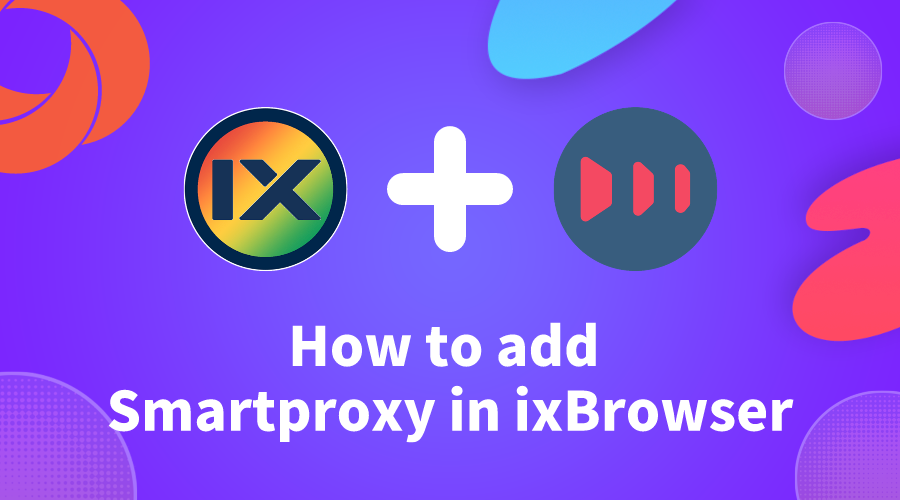How to Manage Multiple Social Media Accounts?
Managing multiple social media accounts is a complex task that requires strategic planning, organization, and, most importantly, the right tools. Businesses, influencers, and individuals often juggle platforms like Facebook, X (Twitter), TikTok, Instagram, and more, each catering to different audiences and content needs. Efficiently managing these accounts is crucial for maintaining a consistent brand presence, engaging effectively with diverse audiences, and maximizing the impact of social media efforts.
To make things easier, we’ve gathered all the best practices, tips, and reviews of the most popular multi-accounting tools in one place. Grab your coffee and learn all the ins and outs of managing multiple accounts on social media.
What is social media multi-accounting?
Multi-accounting is handling several social media accounts simultaneously across various platforms. Multiple account management is an extremely popular practice among businesses, influencers, and digital marketers. Here are a few cases where multi-accounting is used:
Managing distinct brand identities. Businesses with multiple product lines or sub-brands use separate accounts to maintain clear and distinct brand identities, ensuring tailored content and messaging for each audience.
Targeting different audience segments. Companies target various demographic groups or geographical regions through separate accounts, allowing tailoring content offerings to each of the audience.
Running specialized campaigns. Marketers use different accounts to run specific campaigns simultaneously, such as promotions, contests, or seasonal events, without overlapping or confusing different audiences.
Separating customer service and marketing. Organizations often have dedicated accounts for customer service to handle inquiries and support issues separately from marketing and promotional activities.
Influencers managing diverse interests. Influencers with varied content themes, such as travel, fashion, and fitness, manage multiple accounts to effectively cater to each niche audience, ensuring focused and relevant content.
For example, a business might use different accounts to target distinct market segments or to separate customer service interactions from marketing efforts. Influencers may manage multiple accounts to reach international audiences in different languages.
The risks of managing multiple social media accounts
Managing multiple social media accounts presents several risks, including IP bans, account deactivation, and other platform-specific struggles that businesses and individuals must navigate carefully.
A banned IP address is one of the most common risks associated with multi-accounting. Social media platforms have sophisticated algorithms to detect suspicious activity, such as managing multiple accounts from a single IP address. If the account is flagged, this can lead to a permanent IP address ban, preventing access to the accounts and disrupting various activities on the platform. Such a ban can halt campaigns, delay responses to customer inquiries, and ultimately harm the brand's online presence.
Another common risk is account deactivation. Social media platforms enforce strict guidelines to prevent spam while ensuring authentic content and engagement. Managing several accounts might trigger automated systems that flag these accounts for suspicious behavior, resulting in temporary or permanent deactivation. Imagine erasing an account with months or years of effort in building a following base!
There are other risks associated with violating platform-specific terms of service. Each social media site has unique rules and regulations, and unintentional breaches can lead to penalties ranging from reduced visibility, a.k.a. shadow ban, to suspension of advertising accounts. For example, automated posting through third-party tools or using bots for engagement are the most common reasons for shadow bans.
Moreover, using third-party management tools, while helpful, can also pose risks. These tools sometimes violate platform policies, leading to account restrictions or even IP address bans if detected. Relying on sketchy tools without thorough vetting can result in suspension of your account or even compromise of your personal data.
Tools for social media multi-accounting
While there are plenty of tools that offer an easier and safer way to manage multiple accounts on various social media platforms, most professionals rely on a helpful solution called proxies.
A proxy server is an intermediary that separates end users from the websites they access. It acts as a gateway between a user and the internet, routing requests through a different IP address.
Most popular proxy type for multi-accounting is residential proxies. As they originate from real desktop and mobile devices connected to local networks, social media platforms treat them as actual users, making it easier to bypass restrictions and avoid account suspension or IP bans.
With more users looking for trustworthy solutions to avoid CAPTCHAs, IP bans and blocks, or account suspension, more proxy providers have appeared on the market. We have gathered all the relevant information about the most popular providers to make things easier.
#1 Smartproxy
Smartproxy has been named the Best Value Provider by Proxyway for 4 years in a row. The provider offers a massive 65M+ IP pool with 195+ locations around the world and is surely the best choice for affordable residential, mobile, static residential (ISP), and datacenter proxies.
Smartproxy offers a quick setup through its user-friendly dashboard, a range of free tools, including X Browser for multiple browser profiles, and advanced integration guides with various third-party tools.
Users on Trustpilot and G2 rated Smartproxy 4.7 and 4.6 stars, outlining 24/7 customer support, flexible pricing options, and time-saving features.
Key residential proxies metrics:
Success rate: 99.69%
Average response time: 0.54s
Protocol support: HTTP(S) and SOCKS5
IP quality: 32.72 – the best in the market
IP pool size: 55M+ in 195+ locations
Free trial: 3-day free trial
Price: from $2.2/GB
Try Smartproxy For Free Now
#2 Oxylabs
Oxylabs is known as the premium proxy provider, with over 100 million IP addresses across 195 locations. It’s a popular choice among companies that manage multiple social media accounts and need global coverage.
Along with residential, mobile, ISP, and datacenter proxies, Oxylabs also offers its users a convenient proxy manager app and extension.
Oxylabs has a 4.8 rating on Trustpilot and a 4.5 rating on G2, with reviews highlighting reliable residential proxy service and helpful customer support.
Key residential proxies metrics:
Success rate: 99.82%
Average response time: 0.41s
Protocol support: HTTP(S) and SOCKS5
IP quality: 38.98
IP pool size: 100M+ in 195+ locations
Free trial: 7-day free trial for verified companies
Price: from $4/GB
#3 Webshare
Webshare is a budget-friendly option for individuals and businesses managing multiple social media accounts. With a pool of over 30 million IPs across 195 countries, Webshare ensures a reliable connection to various targets, including the most popular social media platforms.
The provider offers datacenter, residential, and static residential proxies, and verified datacenter proxies.
Webshare has a 4.3-star rating on Trustpilot, with users highlighting excellent proxy quality and fast customer support.
Key residential proxies metrics:
Success rate: 99.04%
Average response time: 1.67s
Protocol support: HTTPS and SOCKS5
IP quality: 47.94
IP pool size: 30M+ in 195+ countries
Free trial: 10 free proxies
Price: from $4.5/GB
Bottom line
Managing multiple social media accounts without facing CAPTCHAs, shadow bans, or even IP bans can be challenging. However, adding residential proxies to your toolbox can avoid restrictions without spending a fortune on advanced third-party multi-accounting platforms.
Here are three of the best residential proxy providers on the market we recommend checking out:
Smartproxy
Oxylabs
Webshare
But most importantly, remember to adhere to social media platform's terms of service, avoid sketchy automation bots, don’t spam other users, and you’ll be on the road to success!
Read More




